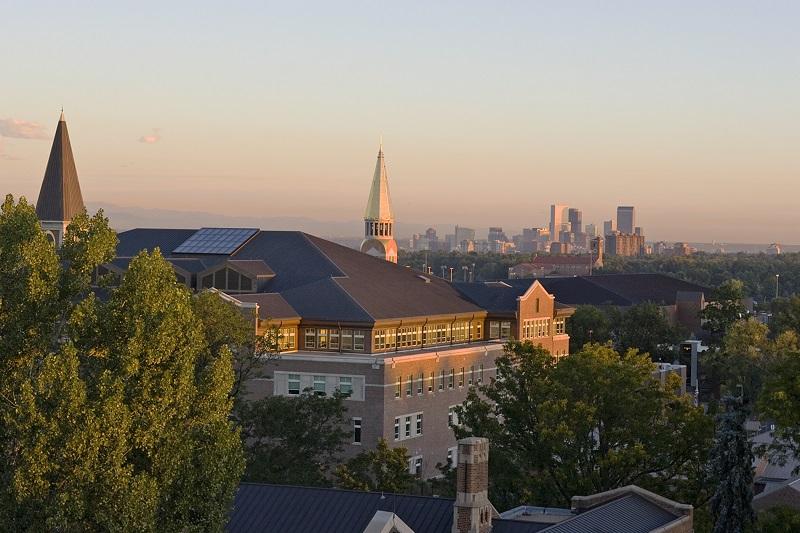Campus Safety Receives Reaccreditation

To support students and support a safe return for the fall quarter, the University of Denver has opened a new, off-campus housing option in downtown Denver. The Auraria Student Loft apartments will provide space for as many as 200 students, while allowing those who remain in on-campus residence halls to de-densify.
“We’re all working diligently to create space in a different way,” says Mandy Whitehouse, director of housing operations. “Every one of our processes has had to be reimagined to fit what it looks like for safety and protecting our students.”
Housing and Residential Education (HRE) began exploring options for de-densification in March, just after the COVID-19 pandemic sent students home for the remainder of spring quarter. As DU devised its fall return to campus plan, HRE worked to balance the on-campus housing experience with appropriate distancing protocols and traditional residential support systems.
An increased number of single-occupancy rooms reduces risk for students and provides options for isolation should students be exposed to the virus causing COVID-19. DU also has designated an entire building as a space for isolation and quarantine for any individuals needing it.
But keeping first-year students in their own rooms meant HRE needed to find space elsewhere. The answer lay an easy 15-minute light rail trip from campus.
“Auraria Student Lofts is a community that’s set up for university students,” Whitehouse says, “so it was a nice fit.”
Space is still available in the Auraria Lofts. To apply, email HRE or visit PioneerWeb.
DU leased the apartments and waived its two-year on-campus living requirement for this year, meaning second-year students can live at the lofts and access its gym, pool and myriad outdoor spaces.
All students are guaranteed their own bedrooms in the units, which — as with on-campus housing — will have live-in resident assistants on duty. The University will also provide programming, regular patrols by safety officers and access to the same virtual courses, activities and resources as it does to every other DU student.
“Even though they’re off campus, they’re still getting all the support that we offer on campus,” Whitehouse says. “I think with mental health concerns, [it’s important] for people to know they have someone who’s looking out for them and doing outreach … to make sure that everybody feels connected and knows someone is looking out for them.”
The Office of Student Engagement has devised programming to maintain a feeling of community, even during more isolated times. It’s just one example, Whitehouse says, of a University-wide team effort to make this work. The custodial and facilities staffs have played an important role too.
“Everyone has worked so tirelessly,” she says. “This isn’t something one group can do on their own. It’s been a huge University push.”


